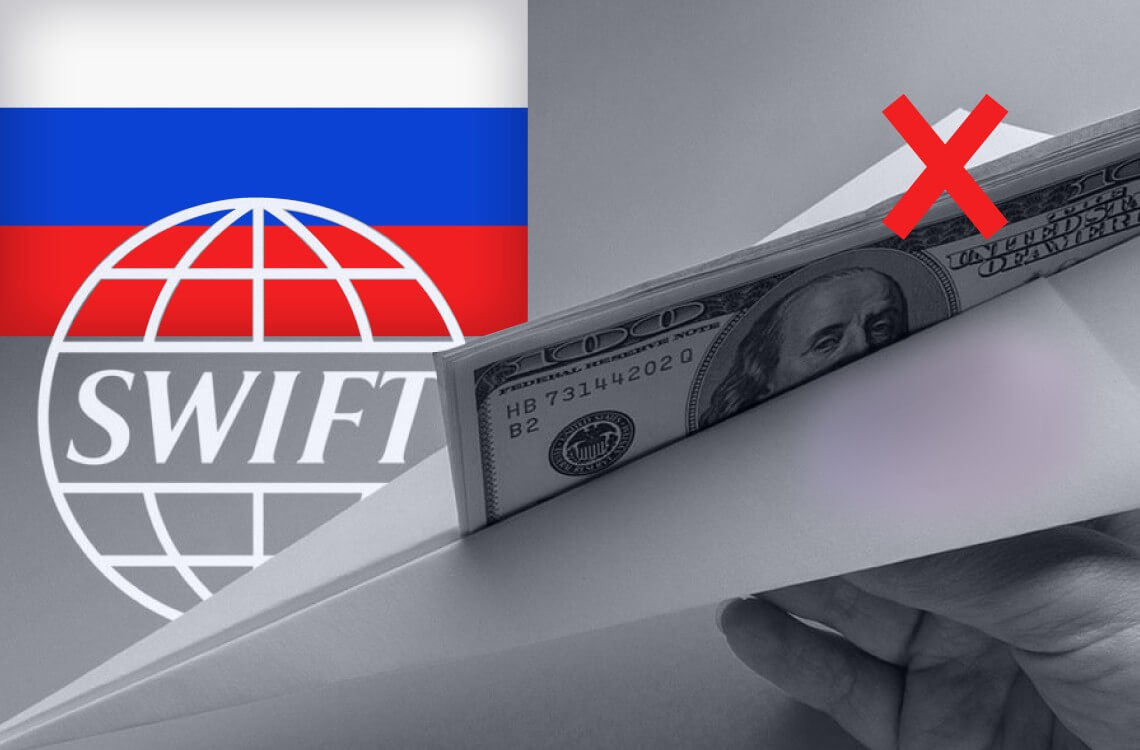In an unfolding scenario that further isolates Russia from the global banking system, the European Union (EU) has signaled it won’t be permitting Russian banks to re-establish links with the Society for Worldwide Interbank Financial Telecommunications (SWIFT) in the near future.
Peter Stano, spokesperson for the EU’s external affairs, was unequivocal in his statement, clarifying that any relaxation of these sanctions would depend on the cessation of conflict between the country and Ukraine.
Russia’s SWIFT sanctions and the black sea grain deal
The SWIFT system, a cornerstone of global finance, facilitates cross-border payments through local banking accounts.
The recent EU decision came as a response to Russia’s requests for a softening of restrictions, six months after the EU announced that it might consider re-instating SWIFT access to the country’s banks.
This re-connection, featuring the Rosselkhozbank, Russia’s Agricultural Bank, among others, has emerged as one of the country’s primary demands for an extension of the ‘Black Sea grain deal’. This agreement currently ensures the safe transit of Ukrainian grain exports.
“The EU sanctions do not impact agricultural and food products trade, including wheat and fertilizers, between the citizens and third countries. There are still payment options between them,” Stano explained.
However, these restrictions have brought about significant challenges in other sectors, most notably in obtaining payments from Russian counterparts.
Difficulties in payment channels
This shift became evident in April when four Indian firms reported an impasse with nearly $400 million in dividends from Russian oil companies due to obstacles in payment channels.
These payment difficulties stem from the EU’s decision to disconnect the banks from the SWIFT system, a measure implemented in 2022 as part of Western sanctions against the country following its ongoing conflict with Ukraine.
This disconnection has compelled the country to de-dollarize its economy and seek other avenues to execute and receive international payments. The country has already established a payments system link with Iran, simplifying transactions between companies and individuals across the two nations.
Despite these advancements, Dmitry Birichevsky, director of the Department of Economic Cooperation of the Foreign Ministry, has affirmed that Russia is actively exploring alternatives to SWIFT and aims to integrate them with its domestic payments system.
In a further sign of this pursuit for alternatives, the country announced in April its collaboration with Venezuela to develop an alternate system to SWIFT.
This move is anticipated to reduce Russia’s dependence on the U.S. dollar for commercial transactions, as disclosed by Russian foreign minister Sergey Lavrov during his visit to Caracas.
In this international climate, Russia’s disconnection from SWIFT serves as a stark reminder of the far-reaching implications of geopolitical strife on the world’s financial landscape.
Whether these efforts to establish alternate financial channels succeed, only time will tell. Nonetheless, the ongoing saga signals a significant reconfiguration of international finance, with impacts likely to ripple far beyond the banks of Russia.





